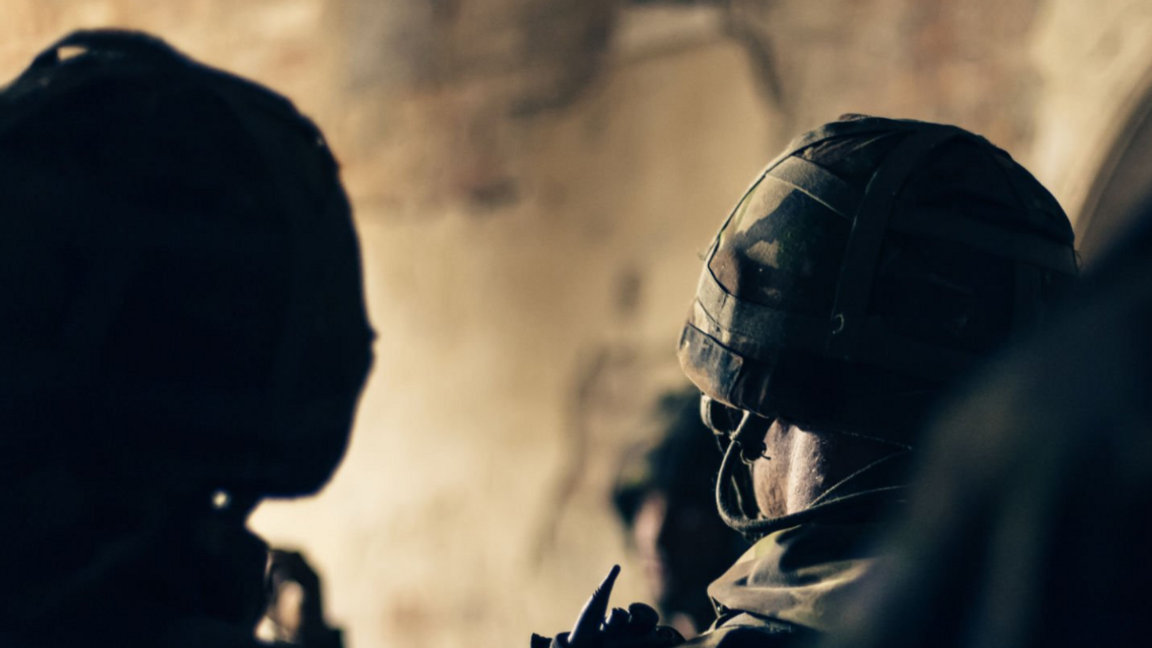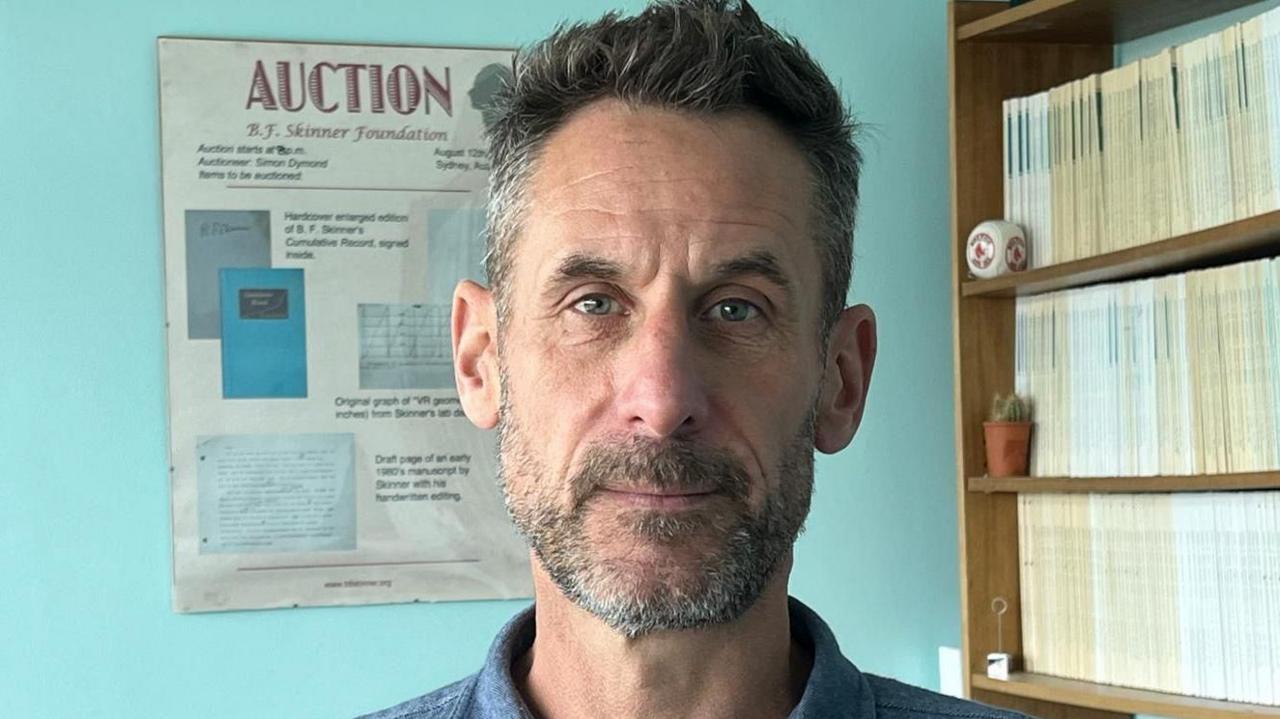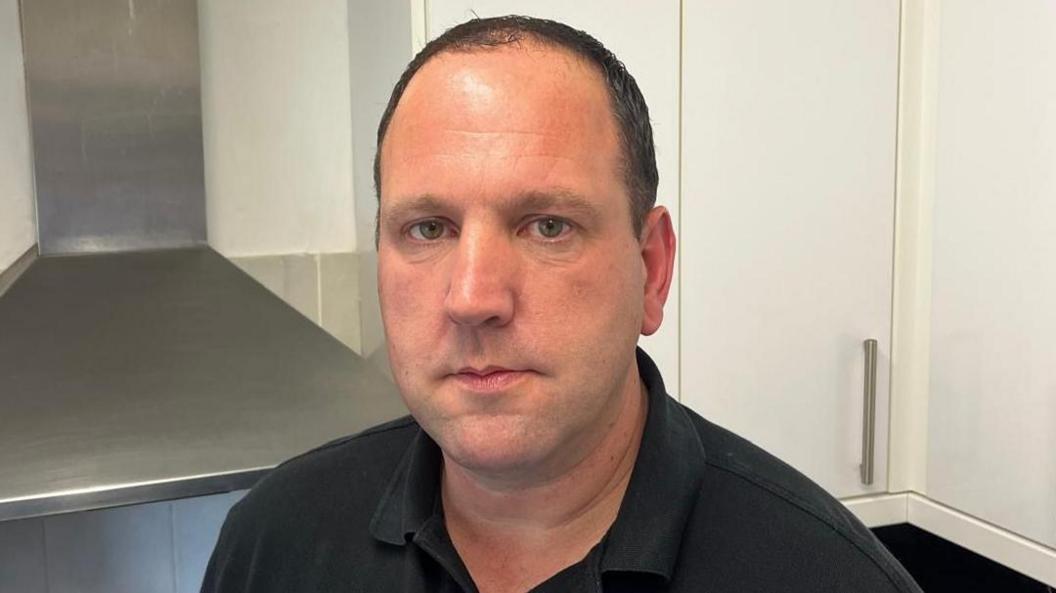From £10k to 10p: Gambling addiction in the forces

The Ministry of Defence says it has support at "every level" of the armed services
- Published
Up to 15 hours a day, placing bets 10 times his wage.
A serving member of the armed forces has told File on 4 Investigates that a gambling problem is easy to hide in the military.
Paul, not his real name, started gambling illegally at 16 at the bookies but it was in the forces he says he lost control of his addiction.
The Ministry of Defence says it has support at "every level" of the armed services and is looking to provide more help.
"Being in a block on your own, it was a perfect storm for it if you're gonna do it, you've got your phone, you got wi-fi, no-one could see what you're doing."
The BBC has agreed to not identify "Paul" who is still serving.
He says he did not reveal his gambling issue because of the stigma associated with it and the impact he felt it could have on his career.
"I can't say for definite, but a lot of people were doing what I was doing...
"I know that some months it was £30,000 staked, £28,000 back, so I'd be losing money every month.
"It would be 10, 15 times my wage. I would never get withdrawn from a betting account.
"But every time I won I would put that back on. And just in a vicious constant cycle, escalated and escalated."
High risk
New research given exclusively to File on 4 Investigates builds on a mounting body of evidence that shows the scale of gambling problems and harm to those serving in the military and veterans.
Swansea University surveyed 433 new naval recruits in their first year.
Of the 174 that admitted gambling in the past year, 44% of them were found to be at some risk of harm - 6.4% were identified to be at high risk based on a score of one or more on the problem gambling severity index.
The average age of the trainees was 21.

Professor Simon Dymond is a psychologist at Swansea University and director at the Centre for Military Gambling Research
"The results did surprise us as they were such young individuals," said Professor Simon Dymond.
"There's no more dormitories and bunk beds, it's people on their own in an individual residential block, fast reliable wi-fi, access to your smartphone and we know that online sports betting is one of the most popular forms of gambling activity.
"There's definitely a link between people who are risk-takers, but what we also find is that individuals tend to use gambling to cope. It's a coping strategy, it's a coping mechanism."
If you have been affected by any of the issues in this story, BBC Actionline has help and advice on addiction and gambling.
This unpublished study builds on research from Swansea University last year showing 608 serving personnel from the Army, Navy and RAF which found 72% had gambled over a 12-month period. Nearly a quarter reported some harm from gambling.
A previous study of 1,037 veterans in 2021 found they were 10 times more likely than non veterans to experience gambling harms.
Prof Dymond added: "Relative to the general population, we found that they were more likely to gamble due to escape or avoidance of distress, a coping style for dealing with PTSD and stress."
Veteran Andy Gallie, 46, who lives in Wiltshire joined the Navy in 1998, leaving in 2011. He served on HMS Endurance in Portsmouth 2007.
He started gambling in arcades at just nine, growing up in Cornwall. He joined the navy at 18 hoping for a fresh start but found an environment in which gambling was "easy".

Naval veteran Andy Gallie said the addiction devastated his family
"If anything it normalised it and then escalated it. You're shown around the base at the very beginning of training and next to the Naafi, the Spa shop, there was a big automat, a big café area.
"There were 40 to 50 fruit machines around that room."
By the age of 23 he was £30,000 in debt.
As his addiction worsened, it was during time back home the real impact was felt.
"Gambling was my one true love and if anybody questioned it or got close to it or were going to tell me to stop, I'd do anything to get them away from it.
"My children are witnessing arguments, my wife was treading on eggshells not wanting to ask about the money, financial abuse you know one day we've got £10,000 the next we've got 10p."
Andy's marriage came to an end and he left the Navy in 2011. He was convicted for theft in 2012.
But as a veteran his gambling continued.
He was convicted for fraud in 2017 and went to prison in 2018 for domestic assault.
He committed another fraud in 2021 for which he went back to prison for 12 months.
He finally stopped gambling after attending a rehabilitation centre in 2022 and now delivers education and awareness programmes to veterans and those serving.
More stories about gambling addiction
High street gambling venues going unchecked, BBC finds
- Published14 October
'I was a rich footballer - and a gambling addict'
- Published26 March
‘I became addicted to gambling after having a baby'
- Published6 April 2023
The MoD acknowledged there were more gambling problems among military personnel compared to civilians, which is why they're working with Swansea University to conduct further research.
For the past three years, the MoD has provided access to NHS treatment through the Primary Care Gambling Service.
Serving personnel can self-refer or can be referred by a clinician.
In what is thought to be a UK first, a new arrangement is being set up with the specialist NHS service the Northern Gambling Clinic.
The MoD says it will provide another route for care and treatment for personnel with severe or complex gambling problems.
It says in future there will be greater sharing of information and the armed forces will work more closely with the NHS.
Regarding stigma, the MoD says they recognise this is a significant barrier and are working to ensure confidentiality is maintained and that seeking help is seen as a sign of strength, not weakness.
In a statement, an MoD spokesperson said: "We have support in place for Armed forces personnel and their families.
"These include treatment pathways with the NHS. Support is available at every level of the Armed Forces and we encourage anyone who may be struggling to seek support."
Get in touch
Do you have a story BBC Hampshire & Isle of Wight should cover?
You can follow BBC Hampshire & Isle of Wight on Facebook, external, X, external, or Instagram, external.